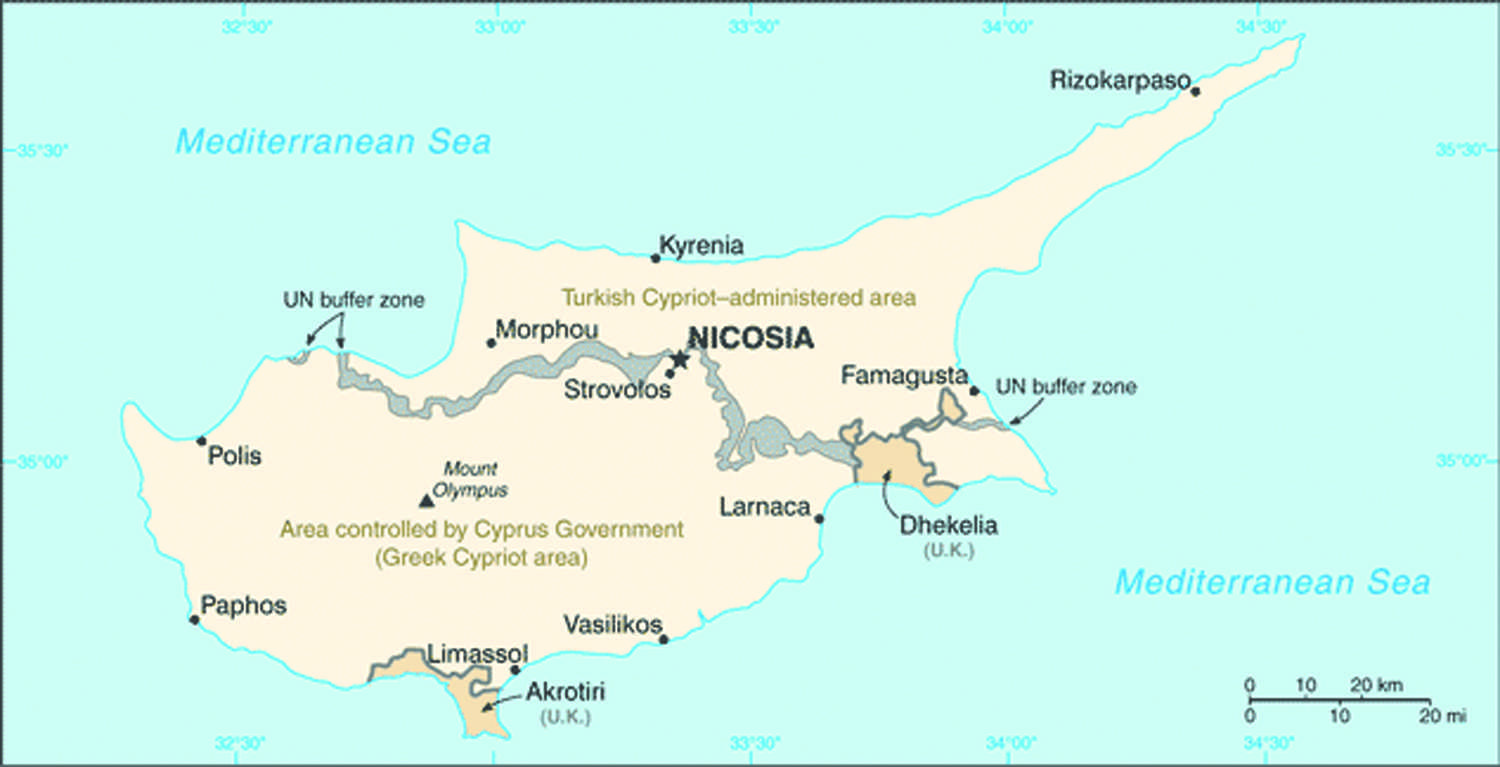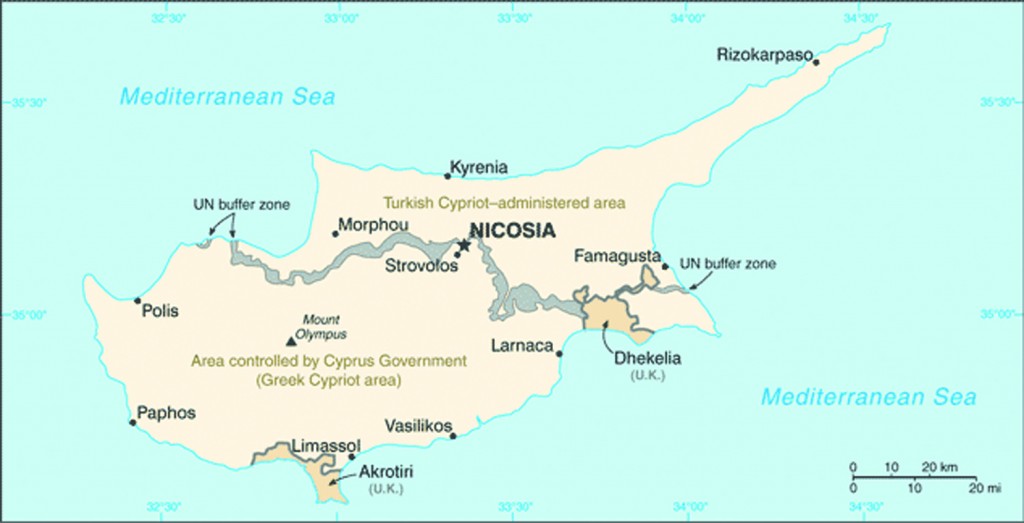Cyprus Shows Dangers of Poor Financial Decisions
Once known as an off-shore banking paradise, Cyprus is now barely maintaining its status in the eurozone. (Courtesy of CIA/Wikimedia Commons)
March 27, 2013

Can’t place Cyprus on a map? Go and read the headlines; right now it’s one of the most important countries you’ve never heard of. The country of Cyprus is in serious trouble in its fight to fall out of the eurozone, and it is struggling to get itself out. Some are saying that although Cyprus’s economic problems will have a minimal effect on the Euro in the larger continent of Europe, their controversial proposals on using private individuals’ funds to solve national debt issues is a tactic we might see employed in other countries like Spain and Italy in the future.
In other words, as small and obscure as the country of Cyprus may seem, the conflicts they’re facing in trying to resolve their economic problems have much larger implications on banks and the relationships they have with the people they serve around the globe—and America is certainly no exception. If you haven’t been paying attention to what’s been happening in Cyprus, this is the time to start.
Seeing Cyprus scramble to solve their economic issues is sad to watch, but it should serve as yet another lesson for its people and for people around the world. It is imperative that citizens fight irresponsible decisions made by their government institutions as well as avoid making bad (though seemingly promising) financial decisions themselves that can jeopardize their livelihoods. Cyprus officials are at fault for having made the unwise decision to join other European countries in bailing out Greece in the hopes of profiting from high interest rates, especially given Greece’s poor economic history that showed they obviously would struggle to pay their debt.
But just as there was public outcry when Nicos Anastasiades, president of Cyprus, recently proposed to take six to 10 percent of citizens’ personal savings to help bring their country out of an economic meltdown (affectionately nicknamed “the haircut”), there should have been a public outcry when the government initially tied itself financially to Greece, a choice that would lead Cyprus to its economic downfall.
For me, Cyprus’s story hits close to home because I’m frequently confronted with stories of college students, at Fordham and abroad, getting screwed over by the educational and financial institutions that they trust, naively letting parents or administrators handle their finances without looking at the fine print and understanding how today’s poor financial decisions can affect them in the future. Yes, Fordham has established itself as a school with an impressive record of doling out financial aid to its students; according to Forbes Magazine, our university gives $15,000 more to students in grants than the national average. But Fordham students still need to be alert.
I certainly have benefited from Fordham’s generous financial aid allocations, a factor that ultimately finalized my decision to come here. But I’ve also had conflicts with our financial aid office with their poor communication and sometimes misinformation, having been overcharged for costs I hadn’t actually incurred. Without having a close watch and directly confronting our financial aid office (thankfully with the reinforcement of my shrewd and frugal mother cheering me on in my head) I would have lost thousands of dollars that Fordham was supposed to have been awarding me on at least two occasions.
I was lucky, but I’m chilled by stories of women like Courtney Munna. A graduate of NYU in her mid-twenties, she was left with $100,000 in student loan debt, an increasing interest and a salary of $25,000 as a photographer. Distracted by the glamour of having a big name school on her resume, Munna took ridiculously high loans from Sallie Mae and Citibank as they looked the other way, not taking into account whether or not she would be able to pay that money back.
Just as Munna’s foolish financial risk-taking has landed her and her family in serious financial straits, it was Cyprus’s foolish financial risks with Greece that have landed them where they are today. To their credit, they’ve come up with a solution: on March 25, Cyprus officials decided to take money from wealthier depositors’ accounts while closing its second largest bank, Laiki Bank—wiping out its larger investments and transfering its smaller accounts to the Bank of Cyprus. Many are relieved that Cyprus officials have let go of their original plan to tax all private depositors, but it doesn’t matter. Now Cypriots have lost trust in their banks and the country is suffering from a bank run. Banks have no way of meeting its consumers’ demands for withdrawals and there’ll be a disaster no matter how the country’s officials go forward.
Risk (like greed) is good. It pushes forward the economy by creating new business opportunities for everyday people and companies alike. But it only works if there is there is an adequate amount of foresight, common sense and tangible resources to back risky decisions up. It is clear that those operating Cyprus’s banking and government institutions must recognize that these entities are not invincible simply because they are influential. It is unfortunate that the people of Cyprus are now the ones suffering economically, yet another European country to fall victim to debt crisis. If we’ve gained anything from this situation, it is a lesson on the importance of holding our government organizations and ourselves accountable for detrimental financial moves.












